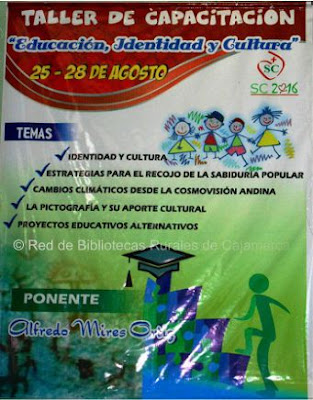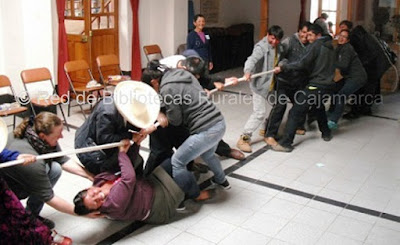No one can say that tales
must only be written after knowing
their laws. First, there are no such laws;
at most one can speak of points of view,
of certain constants that give structure
to that genre that refuses to be pigenholed ...
The contemporary story is proposed
as an infallible machine destined
to fulfill its narrative mission with
the maximum economy of means...
The novel always wins on points,
while the story must win by knockout.
Julio Cortázar
We have Tinku (an encounter) this Tuesday 18th, at 7 pm, at the headquarters of our network (Av. Peru No. 416).
There will be a literary gathering for the release of "El duende del laberinto y otros cuentos medulares" (The elf of the laberinth and other core stories), the recent book by our brother Alfredo Mires, edited by the Network.
The LuArtica project from Spain will make a theatrical representation of some of the stories and, at the end of the launch, we will share our joijona (the traditional table of the Cajamarcan countryside placed on the earth).
Spread the word. You are invited!
















